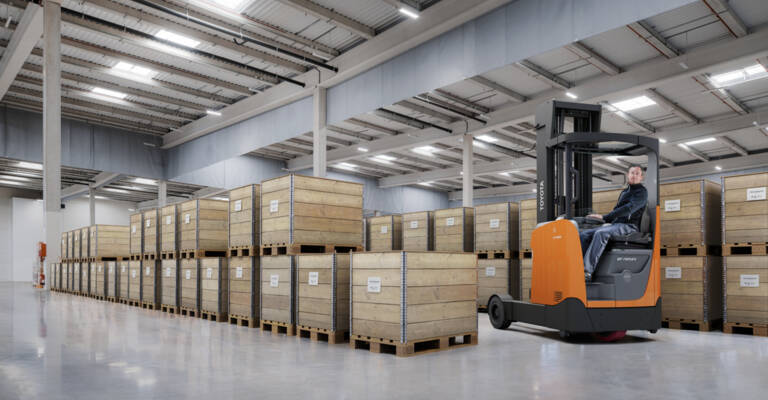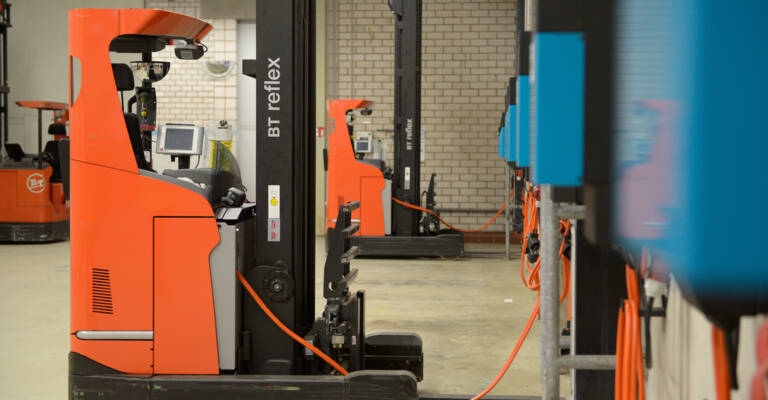Burts Snacks reduces fleet size and makes efficiency gains with Toyota forklifts
Lower maintenance costs, increasing productivity

Burts Snacks manufactures its growing range of own-brand, licensed and private label snacks from sites in Plymouth and Leicester. At both facilities Toyota recommended switching counterbalance trucks for Toyota Reflex outdoor reach trucks.
During a review of the company’s materials handling operation, Toyota identified that by replacing counterbalance machines with multi-functional reach trucks capable of operating outside a building, Burts Snacks could not only reduce the number of forklifts within its fleet - with a resultant drop in maintenance expenditure – but also boost productivity and improve on-site safety.
Providing an efficient, electric fleet

The Toyota Reflex outdoor reach truck has greater ground clearance than traditional models which, along with rubber wheels with tread and a revised gearbox configuration, allows it to work in yards, block-stacking, servicing outdoor racking and loading and unloading vehicles from the side.
It can also perform inside a building and at Burts Snacks’ Plymouth site, the trucks are fitted with Kooi extra long forks with fork cameras to allow pallet loads to be put away within the storage unit’s double deep racking scheme.
In addition Toyota provided a mix of electric counterbalance models, powered pallet trucks and order pickers.
Providing data with I_Site

All of Burts Snacks’ new machines feature Toyota’s I_Site integrated telematics package as standard. The I_Site system allows truck operating hours to be closely monitored along with battery utilisation across the fleet.
“The I_Site system monitors the forklift’s battery and highlights if the power source is being managed incorrectly. For example, if a lead acid battery is opportunity charged, this can cause significant implications to the battery. The I_Site technology can identify this before any harm is done,” says Cresswell.
I_Site also provides valuable data on the efficiency and safety of Burts Snack’s lift truck operators, as Creswell explains: “Because each operator requires his or her own PIN code or smart access card to operate a truck, they quickly realise that they are accountable for their actions during the course of a shift.
“We find that this accountability prompts forklift drivers to take more care when going about their daily routine, which of course, in turn, results in a safer environment and reduced product, truck or building infrastructure damage.”
